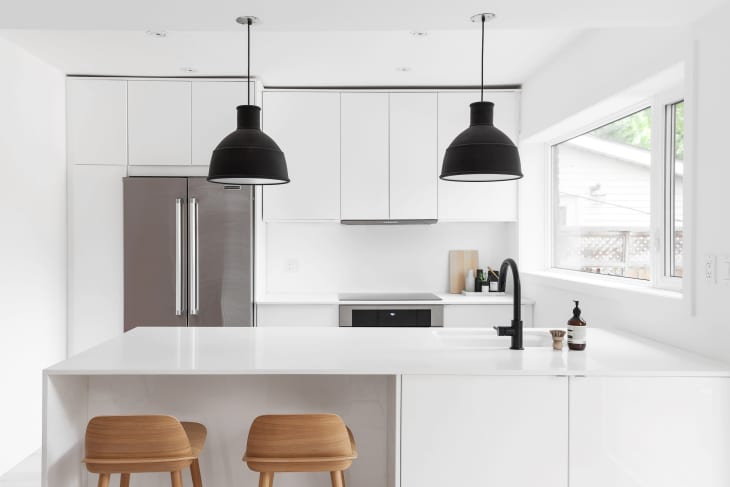Sorry, But These Home Improvements Just Don’t Pay Off
If you plan on selling within five months, or even five years, a renovation is usually planned with extra consideration for resale value. Though there are certain updates that will always be a worthy investment with wide appeal (read: hardwood floors), some projects aren’t worth the trouble if your goal is to maximize your home’s value.
One of the most common pitfalls for value-focused renovators is going overboard on the extras. It’s kind of like decorating: You start out with changing the lighting and next thing you know, you want to overhaul everything else. “Although a surprise to many people, there is such a thing as over-improving a home,” says Lynette Bruno, real estate and lifestyle expert for Trulia.” A completely remodeled kitchen may sound appealing, but you don’t want your costs to exceed your profits. For example, it’s probably not advisable to purchase a full slab of onyx for countertops, as a buyer may not appreciate or be willing to pay for the $30,000 purchase. It’s great to stand out from neighbors, but be careful not to alienate buyers.”
Coastal Living dug even deeper to reveal the other projects that commonly catch the fancy of investment-minded renovators but fail to deliver returns. Here are the top three they highlighted:
#1: OTT Backyard Features: Hot tubs were especially called out for being one of those things that seem like they’d be valuable to a potential owner, but actually have niche appeal. (Some might look at a hot tub and just see the words “constant upkeep.”) Instead, think broader with outdoor upgrades, like a backyard deck that has broader appeal.
#2: Swimming Pools: This one has an asterisk: A pool can add value in a hot market where homes need a little extra something to stand out. However, Coastal Living reports that appraisers consider the feature as adding a little value, but not the full replacement value to your home’s overall worth.
#3: System upgrades (electrical, plumbing, HVAC). If your systems are all functioning properly, taking on the considerable task of upgrading everything for the heck of it isn’t the most efficient use of your time and money. Instead, a warranty is less of an investment that increases buyer confidence.
If you’re already thinking resale, remodeling Magazine recommends investing in “curb appeal” projects — things like exterior doors, windows and siding — that both improve the immediate first impression of your house, but also add functionality. According to their annual Cost vs. Value report, those types of projects were a much better investment than interior changes.
